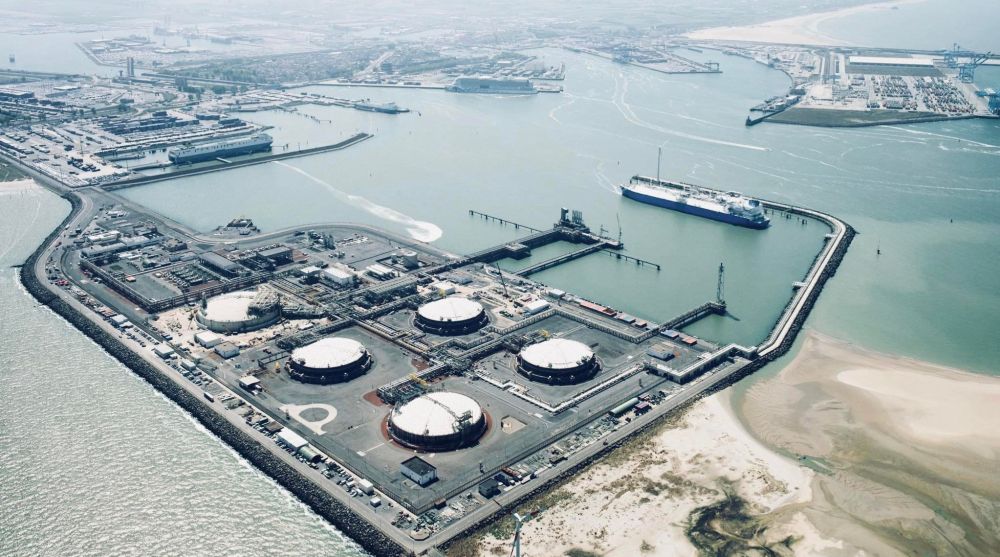

SEA-LNG, the multi-sector industry coalition established to demonstrate LNG’s benefits as a viable marine fuel, announces the membership of Port of Zeebrugge, the innovative seaport of Bruges which has been at the cutting-edge of LNG bunkering for decades.
The Port of Zeebrugge has pioneered the development of LNG bunkering in Europe, with the world’s first purpose-built LNG bunkering vessel – the Engie Zeebrugge (now Green Zeebrugge) – commencing operations there in June 2017.
The partnership highlights the level of collaboration between ports and other key players across the LNG value chain, particularly in the EU. It is vital to continue to support infrastructure development for LNG and bioLNG now and ensure this infrastructure is in place for use with renewable synthetic LNG in the future. By bringing together parties from across the shipping sector choosing the LNG pathway, SEA-LNG supports investment and development in the ecosystem of assets and infrastructure that allow businesses to rapidly adopt LNG as a marine fuel around the world.


Port of Zeebrugge is one of the world’s leading roll-on/roll-off ports, and in 2021 transhipped 49.1 million tons of goods. The deep-sea container terminal, CSP Zeebrugge Terminal, is located adjacent to the open sea and the main shipping routes of north-western Europe.
Infrastructure for storing and transferring LNG marine fuel has been installed and used at the Port of Zeebrugge since 1987. The port is one of the main hubs for LNG supply in the region, receiving pipelines from Norway and the UK, and vessel imports from Qatar. The port’s LNG terminal, operated by Fluxys, offers regasification and offers distribution in Belgium and across Europe the European network in pipelines, trucks or ships. Onsite storage is equal to 9 billion m³ LNG per year. Port of Zeebrugge has broad expertise and valuable experience due to its long-standing and pivotal role in European LNG markets.
Peter Keller, Chairman SEA-LNG: “We’re pleased to welcome the innovative Port of Zeebrugge to our coalition. We look forward to working with the port and its users to continue to drive the growth of environmentally-friendly LNG-fuelled shipping in northwest Europe, creating a pathway for long term decarbonisation of the industry”.
Tom Hautekiet, CEO Port of Zeebrugge: “Sustainability and climate protection are high on the agenda of the port authority of Zeebrugge. This new partnership with SEA-LNG will definitely offer us new opportunities to stimulate the switch to eco-friendly fuels and pursue our ambitions to become a green energy hub internationally. We look forward to working closely with all the partners involved and jointly developing new projects in which we contribute to the planet. Therefore, we can only congratulate SEA-LNG with this effective coalition.”
In 2021, nearly one-third of orders for vessel newbuilds, by capacity, were powered by LNG. Globally LNG bunkering infrastructure growing rapidly, with Clarksons forecasting that by the end of 2022, LNG bunkering will be available in 170 ports worldwide. This growth reflects the fact that LNG is already a fuel in transition, which, with a pathway that includes drop-in carbon neutral fuels, can take shipping from today all the way to 2050. Today, LNG offers 23% reduction over oil-fuelled vessels, after 2030, a 10% increase in the carbon-neutral blend of LNG fuel, will secure an additional two-years compliance with CII regulations.
Reference: portofzeebrugge.be










We believe that knowledge is power, and we’re committed to empowering our readers with the information and resources they need to succeed in the merchant navy industry.
Whether you’re looking for advice on career planning, news and analysis, or just want to connect with other aspiring merchant navy applicants, The Marine Learners is the place to be.